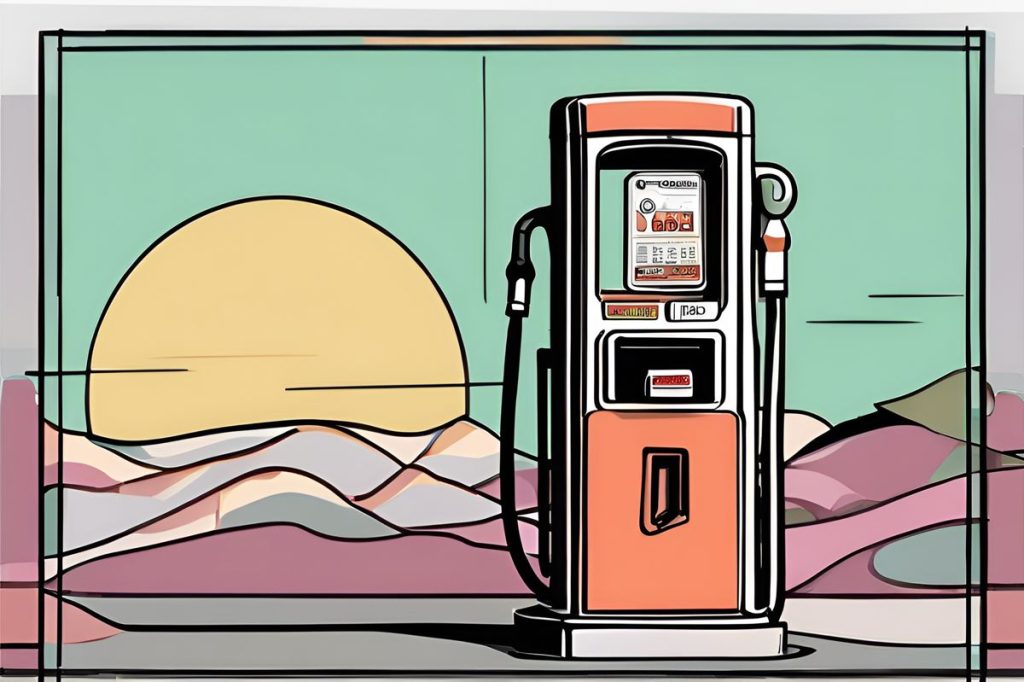The fear of petrol prices surging beyond €2 a litre looms large due to escalating tensions in the Middle East. Experts warn of potential price hikes as geopolitical instability threatens oil supply routes, causing volatility in crude oil prices and raising concerns about significant increases in fuel costs.
Will petrol prices surge beyond €2 a litre due to Middle East tensions?
Due to recent tensions in the Middle East, experts predict a potential surge in petrol prices, possibly exceeding €2 a litre. Geopolitical instability threatens oil supply routes, causing crude oil price volatility and raising concerns about significant hikes in fuel costs.
Tensions in the Middle East Impact Fuel Costs
In light of the recent developments in the Middle East, which have escalated to a point where a counter-offensive is a growing concern, fuel prices are expected to climb. Industry experts have voiced their unease, as the geopolitical instability poses a direct threat to oil supply routes and prices. Christodoulos Christodoulou, representing fuel station owners, expressed certainty about the impending price hikes. The reason for this apprehension stems from the volatility of crude oil prices, currently under close scrutiny.
Brent crude oil, as of today, hovers around the $91 mark. According to Christodoulou, a push beyond the $100 barrier could spell trouble, potentially driving petrol costs in the country up to, or in excess of, €1.70 to €1.80 per litre. Reflecting on the situation in Greece, where prices soared past €2 a litre, he stressed the gravity of the scenario to Alpha TV. The past week alone has seen a notable increase in prices, ranging from 20 to 50 cents across different fuel types.
Current Fuel Price Landscape
The average price for unleaded 95 octane fuel was documented at €1.50 to €1.53, with some places offering as low as €1.46, while others climbed to €1.61. Unleaded 98 octane prices also saw a similar trend, averaging around €1.60, fluctuating between €1.52 and €1.71. Diesel has not been spared from the price surge, with recorded averages around €1.60, ranging from €1.54 to €1.65.
The echoes of last June’s price hikes linger, as there is a looming risk of crossing the €2 threshold once again. This sentiment is shared by Marios Droushiotis, President of a Consumers Association, who recognizes the high price levels but also notes a slight dip from the previous week. Droushiotis remains cautious, indicating that some delayed price corrections from earlier weeks are still to be expected. Over a span of eight to nine days, petrol prices have seen an increase of approximately 4 cents, with diesel going up by 1.5 cents.
Navigating the Fuel Price Surge
As consumers and business owners brace themselves for the potential financial strain, strategies for fuel efficiency and cost-saving measures are becoming increasingly necessary. The unpredictability of the situation has urged many to rethink their daily commutes and transportation choices. While electric and hybrid vehicles offer an alternative, the initial investment and infrastructure support are still in development for widespread adoption.
In the interim, the focus has turned to governments and regulatory bodies to cushion the impact on the economy. Subsidies, tax reliefs, and other economic stimuli are some of the measures under consideration to ease the burden on consumers. As the situation evolves, it is becoming more evident that a collective effort from all sectors of society will be crucial in navigating the challenges posed by the instability of fuel prices.
Will petrol prices surge beyond €2 a litre due to Middle East tensions?
Due to recent tensions in the Middle East, experts predict a potential surge in petrol prices, possibly exceeding €2 a litre. Geopolitical instability threatens oil supply routes, causing crude oil price volatility and raising concerns about significant hikes in fuel costs.
How are tensions in the Middle East impacting fuel costs?
In light of recent developments in the Middle East, fuel prices are expected to climb due to escalating tensions. Geopolitical instability poses a direct threat to oil supply routes and prices, leading to concerns about significant price hikes in the near future.
What is the current fuel price landscape?
The average price for unleaded 95 octane fuel ranges from €1.50 to €1.53, with variations in different locations. Unleaded 98 octane prices average around €1.60, with fluctuations between €1.52 and €1.71. Diesel prices also show a similar trend, averaging around €1.60 per litre.
How can consumers navigate the fuel price surge?
Consumers and business owners are advised to consider fuel efficiency and cost-saving measures in light of potential price hikes. Strategies include reevaluating daily commutes, considering alternative transportation options like electric or hybrid vehicles, and staying informed about government subsidies or tax relief programs that may help mitigate the impact of rising fuel costs.

